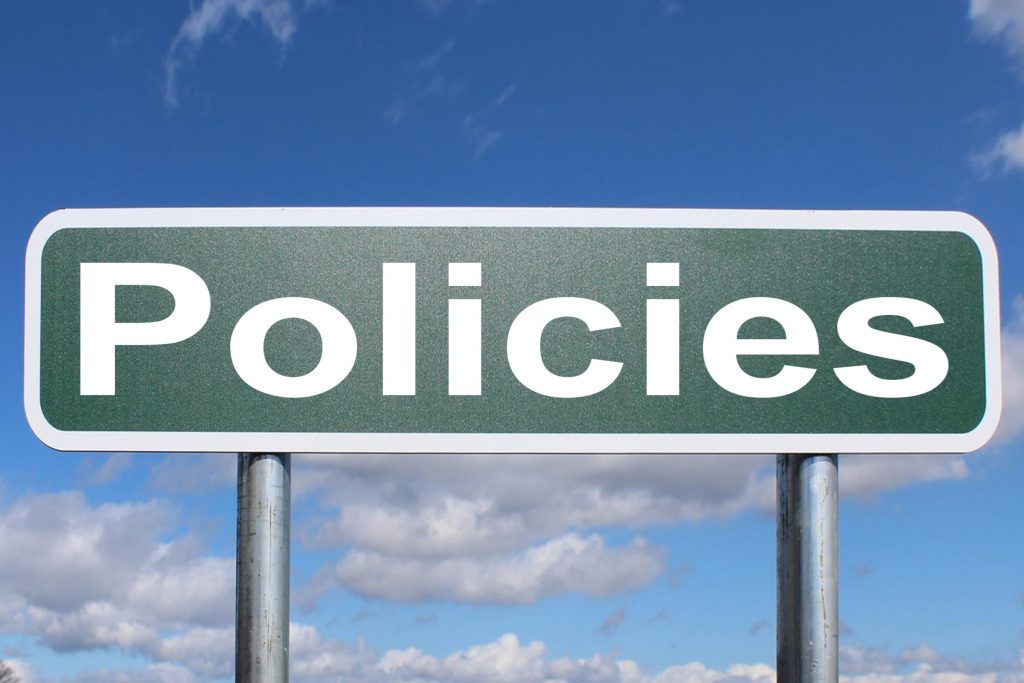
In the fast-paced digital landscape, social media platforms are not just tools for connection; they are also powerful engines that shape public discourse, influence consumer behavior, and drive brand visibility. However, as these platforms evolve, so do their policies. Understanding how to navigate these changes is crucial for both individuals and businesses aiming to maintain their online presence and engagement.
At Sociobo, we recognize the challenges posed by shifting social media policies. Our mission is to help you leverage social media effectively, ensuring that your brand remains visible and influential, even amidst policy changes. In this blog post, we will explore the evolution of social media policies, the implications of recent changes, and how you can adapt your strategy to thrive in this dynamic environment.
The Evolution of Social Media Policies
Social media platforms are constantly refining their policies in response to various factors, including public pressure, regulatory scrutiny, and the changing expectations of their user base. The need for these adaptations has never been more apparent than in recent years, where incidents of misinformation, hate speech, and privacy violations have prompted platforms to reevaluate their content moderation strategies.

The Role of Public Sentiment and Regulatory Pressure
As highlighted by research from New Scientist, negative news stories and public outcry often catalyze significant policy shifts. For instance, platforms like Meta (formerly Facebook) have faced intense scrutiny over their handling of political content and user privacy. The introduction of stricter guidelines is often a direct response to societal demands for greater accountability and transparency.
Recent Policy Changes: A Case Study
One of the most notable recent changes is Meta’s decision to limit political content on Instagram and Threads. This policy automatically enrolls users in a setting that reduces exposure to political discussions, which has significant implications for public discourse and democratic engagement. The broad definition of “political content” encompasses not just government-related topics but also social issues, potentially stifling important conversations around human rights, civic engagement, and social justice.
Critics argue that this policy could create echo chambers, limiting users’ exposure to diverse perspectives. Conversely, proponents believe that reducing political content may combat misinformation and foster a more positive user experience. As we navigate these changes, it is essential to consider how they affect content creators, brands, and users alike.
The Impact on Content Creators and Brands
For content creators who often engage with political themes, the reduced visibility of political content could lead to a chilling effect. Creators may hesitate to discuss critical issues for fear of losing reach and engagement. This shift necessitates a reevaluation of content strategies, emphasizing the need for adaptability in the face of evolving policies.
Brands, too, must be aware of these changes. As political content becomes less visible, companies that rely on social media for brand advocacy and community engagement may need to pivot their strategies. This is where Sociobo’s services can play a vital role. By enhancing your brand’s visibility through social proof aggregation, you can maintain engagement and authority even as the landscape shifts.
The Role of AI in Content Moderation
As social media platforms grapple with the vast amounts of user-generated content, AI has emerged as a key player in content moderation. Machine learning algorithms and natural language processing technologies enable platforms to swiftly identify and remove harmful content, ensuring a safer online environment.

The Advantages and Limitations of AI Moderation
AI content moderation systems can analyze and filter content at an unprecedented scale and speed. They can detect hate speech, graphic violence, and misinformation, allowing platforms to respond to harmful content in real-time. However, AI is not infallible. It can miss nuances and context, leading to potential overreach or misclassification of content.
To mitigate these limitations, many platforms adopt a hybrid approach, combining AI with human oversight. This ensures a more nuanced understanding of content and reduces the likelihood of unjustified censorship. For brands and individuals, understanding this landscape is crucial, as it can impact how your content is perceived and moderated.
Navigating Policy Changes: Best Practices for Brands and Individuals
As social media policies continue to evolve, here are some best practices to help you navigate these changes effectively:

1. Stay Informed
Regularly review updates from social media platforms regarding their policies, especially if you rely on these platforms for brand visibility. Understanding the nuances of these changes can help you adapt your content strategy accordingly.
2. Adapt Your Content Strategy
With the reduction of political content visibility, consider diversifying your content. Focus on themes that resonate with your audience while remaining compliant with platform policies. This could include lifestyle content, educational posts, or community engagement initiatives.
3. Leverage Sociobo’s Services
Sociobo specializes in enhancing your social media presence through social proof aggregation. By increasing your follower count and engagement metrics, you can improve your visibility and authority, making your profile more attractive to organic followers. This strategy is particularly beneficial in times of policy change, as it helps maintain your brand’s relevance.
4. Foster Community Engagement
Engaging with your audience is paramount. Encourage discussions, respond to comments, and create interactive content that fosters community. This not only boosts engagement but also helps you build a loyal following that can withstand policy fluctuations.
5. Monitor Analytics
Keep a close eye on your social media analytics. Understanding how policy changes affect your engagement and reach can provide valuable insights into what content resonates with your audience. Use this data to refine your strategy continuously.
Social Media Policy Examples
To better understand how to navigate social media policies, it’s helpful to look at examples from successful companies. Here are a few notable social media policies that can serve as inspiration:
Coca-Cola
Coca-Cola’s social media policy emphasizes transparency and responsibility. It provides clear guidelines for employees and associates, ensuring that everyone understands the company’s values within the online community.

Dell
Dell’s Global Social Media Policy focuses on six key principles, including protecting information and being transparent. This concise approach makes it easy for employees to understand their responsibilities while engaging online.
Intel
Intel’s social media guidelines stress the importance of disclosure and transparency, requiring employees to use specific hashtags when posting about the company. This level of clarity helps prevent potential legal issues and maintains clear boundaries between personal and professional use.
Best Buy
Best Buy’s policy is summarized by the phrase “Protect the brand. Protect yourself.” This straightforward approach outlines what employees should and shouldn’t do, making it easy to follow.
These examples highlight the importance of clear guidelines and transparency in social media policies. By learning from these models, you can develop your own policy that aligns with your brand values and objectives.
As social media platforms continue to evolve, staying informed and adaptable is crucial for individuals and businesses alike. Understanding the implications of policy changes and leveraging strategies like social proof aggregation can help you maintain your visibility and authority in an ever-changing landscape.
At Sociobo, we are committed to helping you navigate these challenges. By enhancing your social media presence through our tailored services, you can build a strong brand identity and engage effectively with your audience. Don’t let policy changes derail your social media strategy—embrace them with confidence and support from Sociobo.
Explore how Sociobo can help you elevate your social media game today. Visit Sociobo.com to learn more about our services and how we can assist you in building your brand identity in the digital age.






No comment yet, add your voice below!